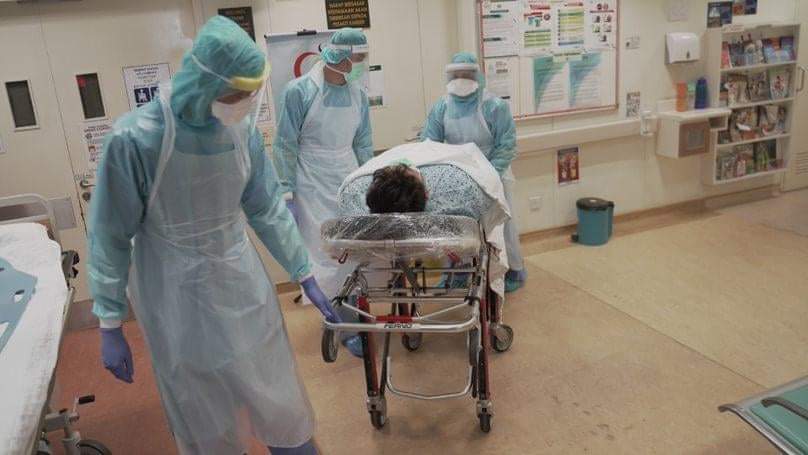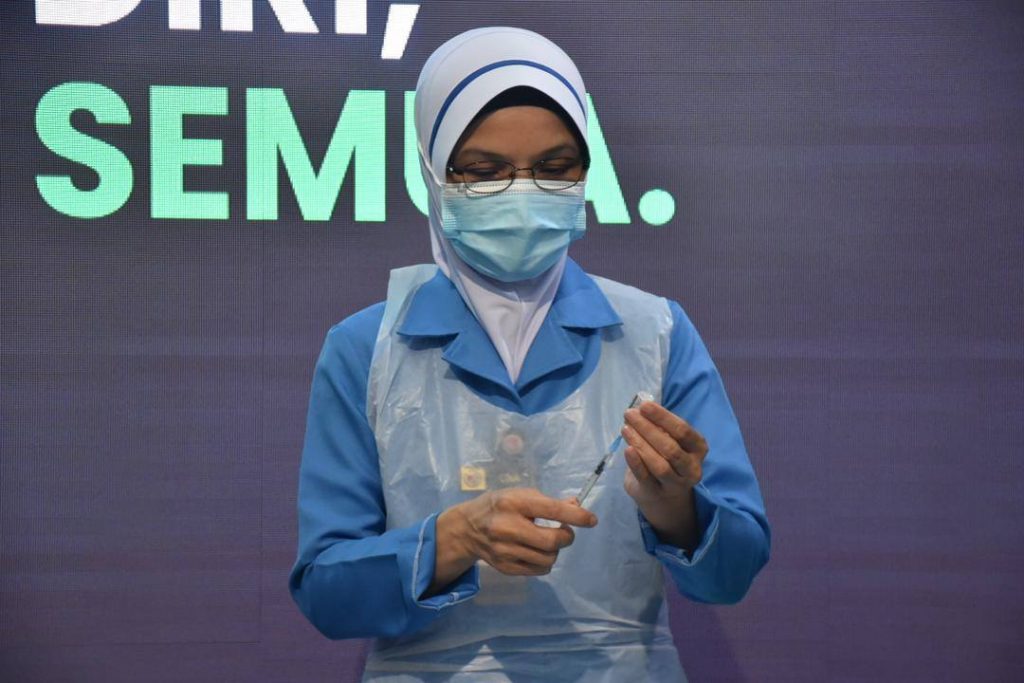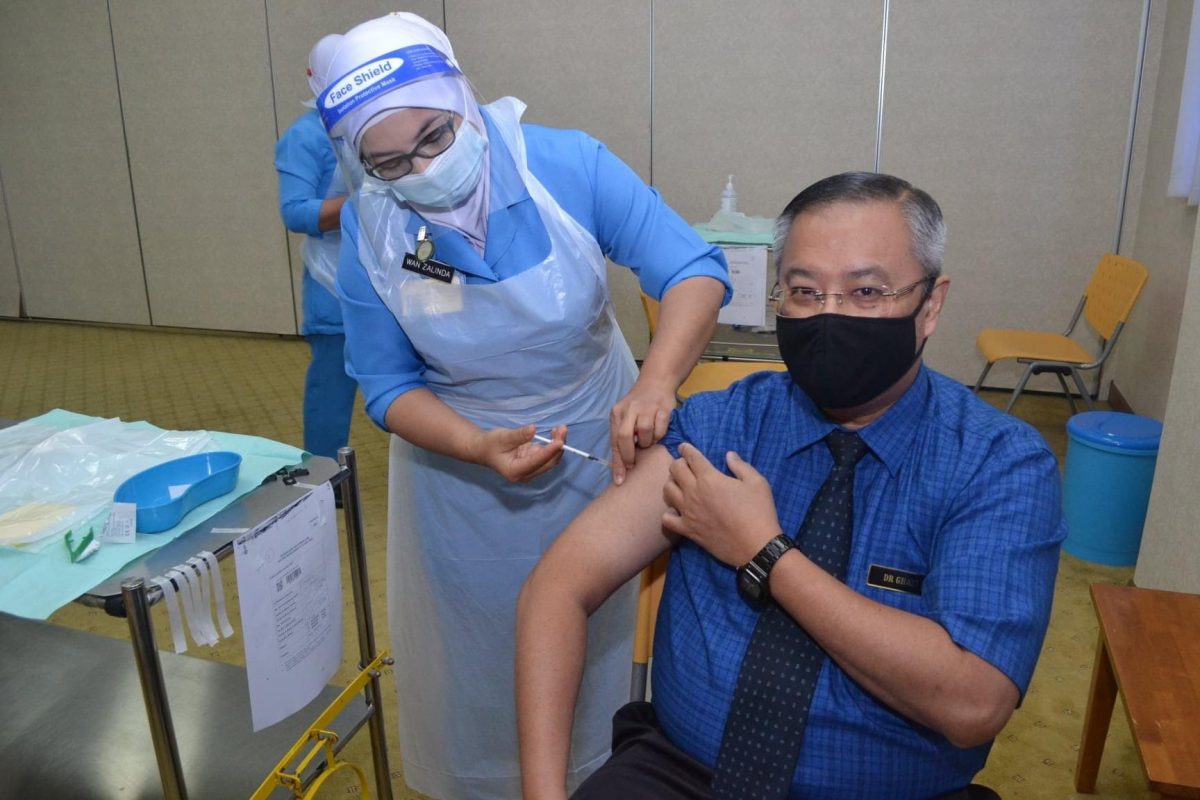KUALA LUMPUR, March 9 — Frontline health care workers have shared their excitement about receiving Covid-19 vaccination and how safer they feel at work when handling coronavirus patients after getting the jab.
The Covid-19 vaccine rollout started nationwide on February 24 and as of March 7, a total of 139,720 frontliners have been vaccinated with the first dose of the Pfizer-BioNTech vaccine. This amounts to 27.9 per cent of the government’s target to give the first dose to 500,000 frontline workers by March 31.
A house officer from a Ministry of Health (MOH) hospital in Selangor said he was so excited to get vaccinated that he even arrived 20 minutes earlier for his appointment.
“I was post-night (shift) that day. I waited about only 15 to 20 minutes as I came early. I was the 22nd person to be vaccinated that day,” the doctor told CodeBlue.
He said his bosses from the medical department submitted his name to get the Covid-19 vaccine. Then, he registered himself for vaccination through the MySejahtera app, where he was given the appointment date on March 1.
The doctor said that the vaccine team explained to all recipients about the vaccine prior to consent-taking.
“We were told to ask or call the occupational safety and health team directly whenever we have any queries regarding the vaccination process as well as the vaccine.
“Firstly, we need to register our names and scan the QR code provided by the hospital. While doing that, one of the staff will check our temperature. The vaccinator will then aspirate the vaccine from the vial using a blue needle and inject it into our body using the orange needle,” the doctor said.
“I’m not going to say it’s not painful, but the pain was only felt during the injection.”
Anonymous house officer from an MOH hospital in Selangor
The house officer at the government hospital pointed out that the vaccination process took less than five minutes. He was then monitored for adverse reactions and a vaccination card with his next appointment date was given.
The Pfizer vaccine is a two-dose regimen, with the second dose recommended to be given three weeks after the first. All those vaccinated were told to immediately report any adverse reactions, said the trainee doctor.
The doctor, who went home after the whole process, said that health care workers were informed that they can take time off from work if they develop any adverse reactions, according to severity.
“Post-vaccination three days, currently I’m well. I have not developed any side effects besides the local effect, which is pain at the injection site which only lasted for 24 hours post vaccination.”
More Confident Going To Work Post-Vaccination

Another MOH doctor from Selangor, who spoke to CodeBlue anonymously, said she is finally feeling much more confident to go to work and to be at public places after getting her Covid-19 jab.
“When the vaccination started, it felt as if hope was finally here,” the doctor said.
“I feel more confident. My risk of contracting coronavirus is much lower now. Although I just received my first dose, soon I will be more confident to go back home to my family.”
The government doctor said she had experienced multiple incidents coming into close contact with positive Covid-19 cases. This had led her to be quarantined twice on two separate occasions.
“Everytime there’s a positive Covid-19 case, many of us have to be quarantined, reducing our workforce and increasing our workload. With this vaccination programme, things can slowly return to normal.”
“Although now wearing personal proactive equipment (PPE) is still essential, the worry of contracting this deadly virus from patients while examining them has significantly reduced.”
Anonymous MOH doctor from Selangor
Besides that, the doctor also added that she was glad to see her colleagues with children at home, as well as those looking after their aged parents, get vaccinated.
The government doctor said she never fails to take the opportunity to educate her patients on the importance of the Covid-19 vaccine.
“I personally feel more awareness about the vaccination programme should be done nationally and globally so that the public will have a better understanding of the importance of getting vaccinated.”
Process Of Administering Vaccines Getting Easier

An MOH staff, who is part of the vaccination team in Melaka Hospital, said that behind the scenes, the whole vaccination process is getting more efficient and smooth.
“We go through the vaccination pretty efficiently each day. We are finding that it’s getting pretty easier and easier,” the MOH vaccination team member told CodeBlue, while pointing out that currently, her team vaccinates about 200 individuals daily.
Initially, she said the vaccinators were nervous about carrying out the vaccination procedure because they realise the importance of the process, considering each vial of the Pfizer-BioNTech vaccine is just enough for six people.
“Even the first time they did a trial run, at the end of the day, they found that everything was just nice. Everything was exactly as according to their calculations, so nothing was wasted. Hence, they’ve been sticking to that system ever since.”
“It’s so nice to see the matrons, sisters, and the pharmacists especially, they are very very meticulous about it. So you know it gives us confidence that they are doing the best that they can.”
Anonymous Melaka Hospital staff
She explained that post-vaccination, those who have a history of allergies are categorised in the red group and they will be observed for half an hour. Meanwhile, those with no history of allergies (green group) will be observed for 15 minutes.
“If they have reactions on that day, they will be observed first. If it’s just a mild reaction, there is a special area where they can be observed and rest.”
The MOH staff said those who develop escalated reactions to the coronavirus vaccine will be sent to the emergency department, but so far, the only reaction seen was just rashes; the person was well after that.
She also said that all heads of departments in Melaka Hospital are informed to allow staff who develop reactions to get medical leave or time off.
“The staff is also made to understand that they do not get medical leave if they have no reactions.
“In general, the departments are fairly understanding. If someone is not well because of that, I really don’t think they are going to make them come to work,” the vaccine staff said.
She said that in each department, there’s a designated staff who is in charge of vaccination. So if anyone develops adverse reactions from the vaccine much later after monitoring, they will have to report to that elected officer in the public hospital.
All the MOH staff that CodeBlue interviewed for this story spoke anonymously because of a gag order on government health care workers.








